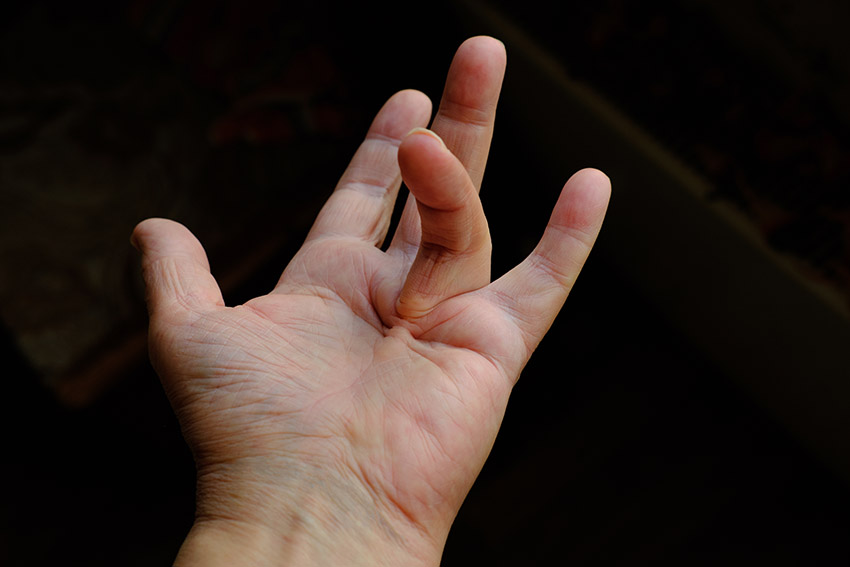Dupuytren’s disease is a condition in which tissue
under the skin of your palm and fingers thicken and tighten. It is a genetic
disorder that causes a hard lump on the palm, making it difficult to straighten
the fingers. It may not always be painful, but it restricts your hand movement.
Dupuytren’s disease permanently bends fingers into a fixed position; it can
become difficult to grasp large objects and perform simple tasks like washing
the face or putting gloves on. However, it may not stop you from writing or
gripping small things, as the index finger and thumb remain unaffected. Apart
from family history, many factors can escalate risks, such as smoking, alcohol
consumption, diabetes, thyroid dysfunction, and prolonged exposure to cold
temperatures, especially for people sensitive to cold.
What are the Symptoms?
Common symptoms of Dupuytren’s disease include nodules
in the palm, fingers bent down toward palms, difficulty straightening fingers,
and using hands. Dupuytren’s isn’t always painful; the nodules in the palm may
be sensitive to touch. Small nodules are the first signs, but thick cords that
affect fingers and draw them toward the palm form as the condition progresses.
The bending caused by thick tissue is called contracture. Dupuytren’s
contracture is more common in middle-aged men, and the exact cause that
triggers it remains unknown.
Dupuytren can take many years to develop. Some people
experience mild forms, while others may have severe symptoms that pose a
challenge in performing the simplest tasks in daily life. Signs or symptoms may
likely occur in one or both hands, and the most common fingers are ring and
little fingers, but it can also affect other fingers.
How to Diagnose Dupuytren’s Contracture?
Our healthcare provider thoroughly examines the
patient’s hand. The idea is to test the flexibility and feeling in the thumb
and fingers. Grip and pinch strength may also be tested, along with locations
of nodules and bands on the palm. Then, a tool tests how much your fingers are
contracting. These measurements will be compared to later measurements to see
if the disease worsens. They can also be used to see if treatment is working.
If the condition progresses slowly, you feel no pain,
and it has little impact on your ability to use your hands for everyday tasks;
you don’t need treatment, just monitoring. However, if your condition has
progressed to the point where it impacts your ability to use your hands,
nonsurgical and surgical options are available for treating Dupuytren’s
contracture, depending on the severity. Contact our office today if you feel
you are suffering from this conidition and would like an evaluation.

